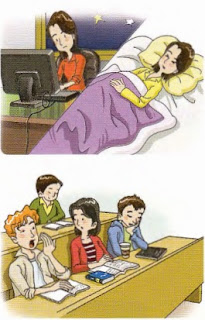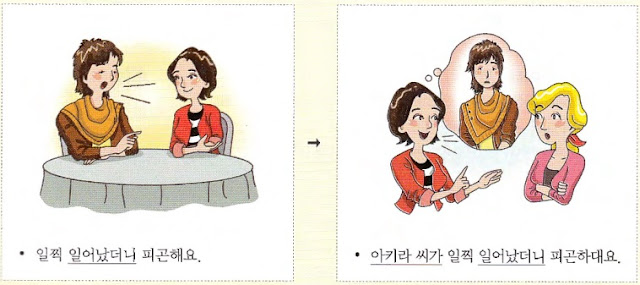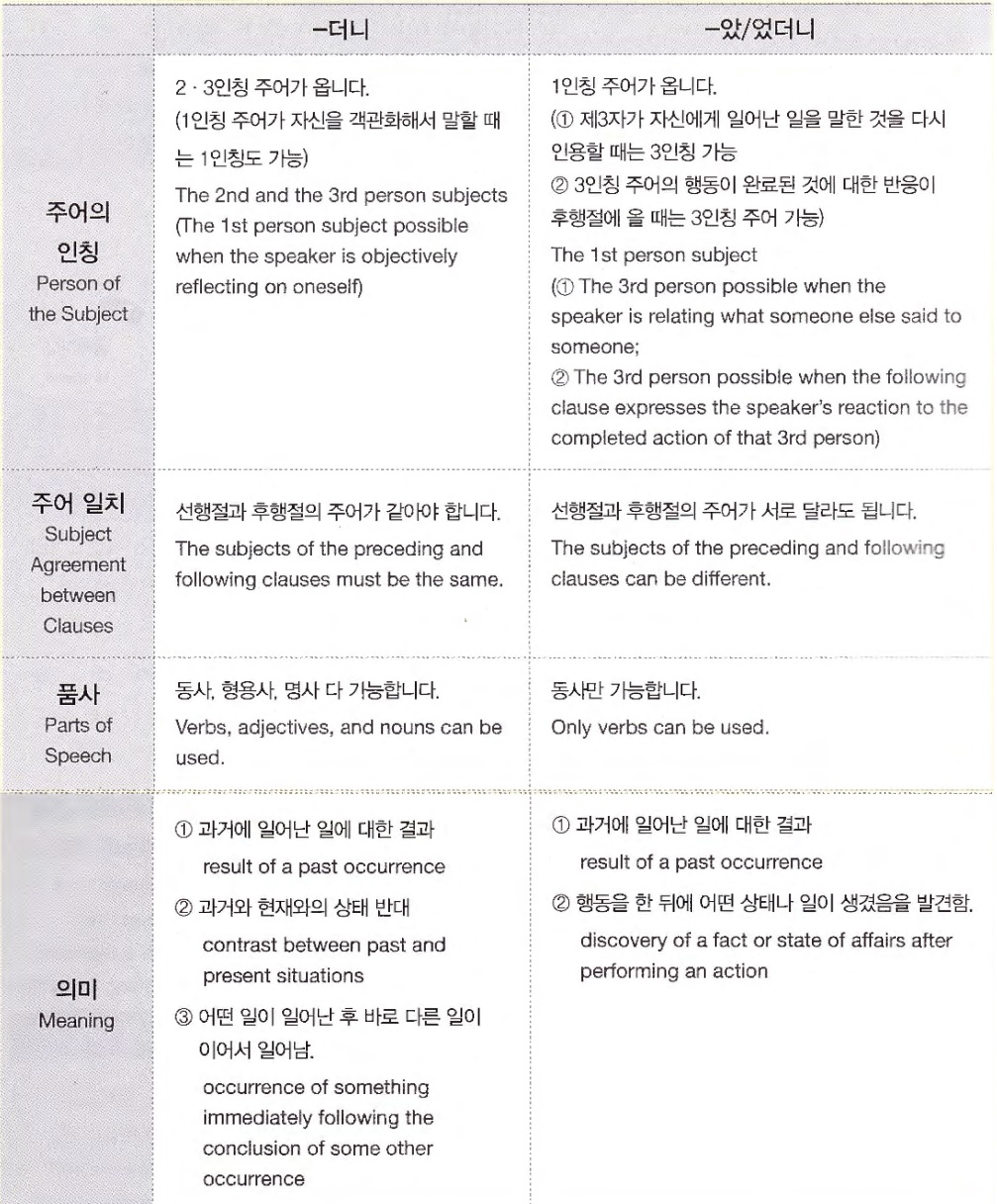 가: 은혜 씨, 얼굴이 안 좋아 보여요.
가: 은혜 씨, 얼굴이 안 좋아 보여요.
Eunhye, you don’t look good.
나: 며칠 야근을 했더니 몸살이 났어요.
I worked late for a few days straight and fell ill as a result.
가: 자야 씨는 졸리지 않아요?
Aren’t you sleepy, Jaya?
나: 네, 좀 전에 커피를 마셨더니 괜찮은데요.
No, I drank some coffee earlier, so (because of that) now I’m fine.
This expression is used to indicate that something happened as a result of something the speaker did or said previously.
 가: 감기는 좀 어때요?
가: 감기는 좀 어때요?
How’s your cold?
나: 약을 먹었더니 좀 좋아졌어요.
I took some medicine, and (because of that) it got a little better.
가: 한국어가 많이 자연스러워졌네요.
Your Korean has gotten a lot more natural sounding.
나: 고마워요, 한국 드라마를 꾸준히 봤더니 자연스러워진 것 같아요.
Thank you. it seems to have gotten better because I watched Korean dramas nonstop.
가: 내일 준수 씨 여자 친구도 모임에 오나요?
Junsu, will your girlfriend come to the get-together tomorrow?
나: 아니요, 여자 친구에게 같이 가자고 했더니 싫다고 하더라고요.
No, I invited her to go, but she said she didn’t want to.
1. This expression can also be used to indicate the speaker’s discovery of what is expressed in the following clause after doing the action stated in the preceding clause. In this case, the expression -(으)니까 can also be used to indicate the same meaning.
• 백화점에 갔더니 사람이 많았어요.
= 백화점에 사람이 많았어요.
I went to the department store and (found that) there were a lot of people.
• 그분을 만나 봤더니 아주 친절한 분이셨어요.
= 그분을 만나 보니까 아주 친절한 분이셨어요.
I met that person, and (I discovered that) he/she was very kind.
2. When an action is described in the preceding clause, the person who performs the action must be ‘나’ that is, the 1st person.
• (내가) 오래간만에 운동을 했더니 기분이 상쾌해요.
• (내가) 1년 동안 한국에 살았더니 이제 한국 생활에 익숙해요.
However, when the preceding clause relates to what someone else said, the subject of the clause can be in the 3rd person.

3. There are cases when the subject of the preceding clause is in the 3rd person. In such cases, the speaker is recollecting the, completed action or behavior of someone else. In addition, the subjects of the preceding and following clauses are different, with the following clause typically describing a reaction to the action or behavior described in the preceding clause.
• 아키라 씨가 피아노를 쳤더니 사람들이 박수를 쳤습니다.
Akira played the piano, so (in response) the people (crowd) applauded.
• 사람들이 웃었더니 게이코 씨 얼굴이 빨개졌어요.
Everyone laughed, so (as a result) Keiko’s face turned red.
• 정호 씨가 늦겠다고 했더니 수진 씨가 화를 냈어요.
Jeongho said he’d be late, so (upon hearing that) Sujin got angry.
While -더니 and -았/었더니 are similar in meaning, they are different in the following respects.

>> You can click on the title of each grammar below to learn about the other grammar which also expresses ‘Discoveries and Results’:
01 -고 보니
02 -다 보니
03 -다 보면
04 -더니
05 -았/었더니
06 -다가는
07 -(으)ㄴ/는 셈이다
>> Full of Intermediate grammar: Click here
